Question
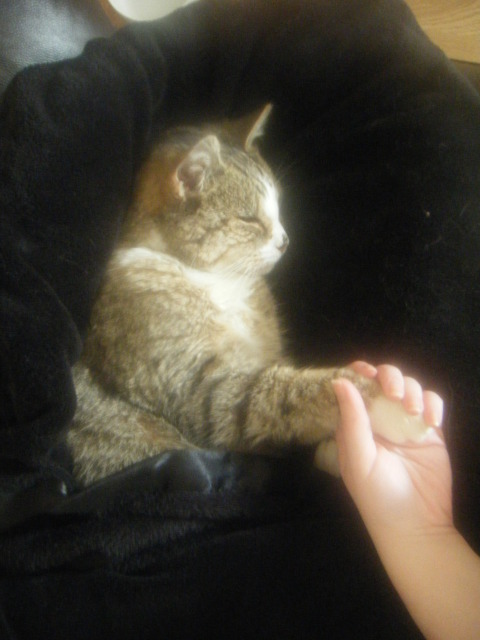 Timmy since his loss o
Timmy since his loss o
Hi, I'm really worried about my cat. Can you offer some
advice??? He is 16 year old neutered male, who's name is
Timmy. who went missing two weeks ago for a day and came
back with a limp. We brought him to the vet who said that he
had severe arthritis due to age and assured us nothing had
broken or dislocated. Timmy was always a quiet cat with a
very gentle temperament and he has become even more quiet in
the las couple of years and sleeps most of the day. The vet
worried this was due to renal or liver failure and asked to
due blood tests. He also had a bad tooth that had an abscess
on it, so Timmy was sedated an had the tooth pulled, while
getting the blood tests done. Luckily his organs are fine,
and the vet commended us for keeping him in good shape at
such an old age. However when we brought him home his
condition deteriorated. He has lost his appetite, which we
put down to the anesthesia, however it is now one week since
his dental and his appetite has not increased. He will eat
about two mouthfuls 3 times daily and is not drinking a lot,
sometimes not at all... We have to wake him up and place him
beside his food before he will eat anything. He has appeared
to lost a lot of weight also. I am worried that if i bring
him back to vet they will put him to sleep, and i am aware
that this is selfish of me, however I am distraught at the
thought of losing my lifelong pal. Today is Tuesday(one week
since anesthesia) so I have said I will give him until
Friday to see if his condition improves, He showed a little
sign of improvement yesterday (Monday) and ate more than he
had the previous days. He is not very mobile and appears
very weak. We are trying to make him as comfortable as
possible and trying to feed him regularly. I am just so
concerned as it is very sudden, and particularly when the
vet said he was healthy for his age. Do you have ant idea
what could be the cause, and do you think I am doing the
right thing by monitoring his condition before bringing him
to our vet? What would you recommend? I am inconsolable at
the minute, every time i think if losing him i break down.
Please offer advice..... Amy, a cat lover from Ireland!
AnswerHi Amy,
I'm so sorry to hear about Timmy's condition. Some cats have a difficult time recovering from dental surgery. It can be very painful. You may want to talk to your vet about a good pain reliever and see if this helps him at all. Most cats are sent home with a pain injection that lasts a few days, but this is a non-steroidal anti-inflammatory and isn't the strongest kind of pain reliever. Some cats require more of a narcotic. A week after surgery, pain should be subsiding quite a bit, but it still may be worth trying either an oral NSAID (a cat-safe one from the vet) or a narcotic. I don't think this could hurt, and if he perks up, it will give you a good idea that he may not be eating due to mouth pain.
Something else you may consider looking into is pancreatitis. I lost one of my cats to this disease after a dental cleaning. He apparently had been dealing with chronic pancreatitis unbeknownst to us, and the surgery and anesthesia pushed him over the edge. Unfortunately, pancreatitis does not always show up on standard blood tests. There are a couple of pancreatic and liver values on regular blood panels, but these are often not affected, even when pancreatitis is present. The best way to detect pancreatitis is to run a PLI test. This is a specialized test run only in specific labs, and it's not included in any standard tests. The test takes up to 10 days for results, but some labs (if available in your area) can run an express version, called a Spec-fPL in the US, that can yield results in just 2 days. Other than this, an ultrasound can be helpful in diagnosing pancreatitis.
The road to recovery from pancreatitis can be long and is not guaranteed, but at least you will have an answer. Most cats require anti-nausea medications and pain relievers. Small meals many times a day are recommended. Some vets recommend reduced-fat or easy to digest prescription foods. Most vets feel antibiotics are beneficial.
These would be my two best ideas. Beyond this, you might consider an x-ray of his abdomen to see if it turns up any abnormal masses. Sometimes cancer will cause these symptoms, and x-rays can show abnormalities consistent with cancer. An ultrasound is even better, but they may not be as widely available.
Best wishes. I hope he is feeling better soon!
Jessica


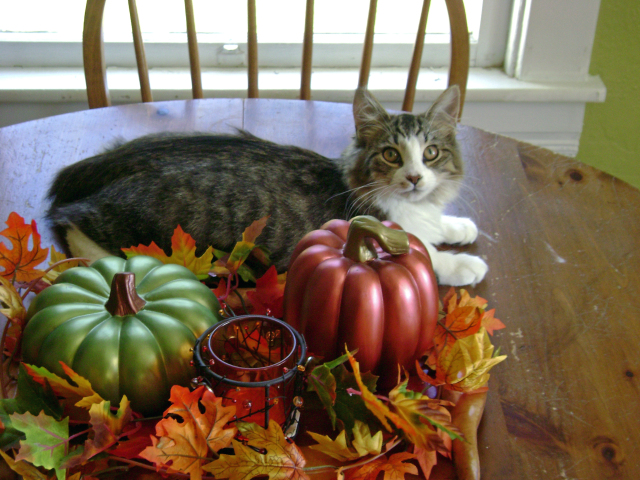 The breed of my 5 1/2 month old kitten
Question
Edmund 5 1/2 months ol
Hi, my husband and I re
The breed of my 5 1/2 month old kitten
Question
Edmund 5 1/2 months ol
Hi, my husband and I re
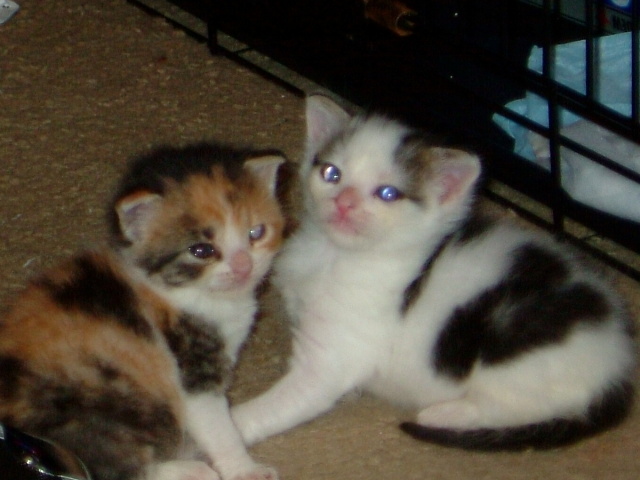 2 Ferals
Question
Sister and Brother at
Hello!
Im so glad I fo
2 Ferals
Question
Sister and Brother at
Hello!
Im so glad I fo
 identify breed of cat
Question
Male cat 4 years ol
I recently adopted
identify breed of cat
Question
Male cat 4 years ol
I recently adopted
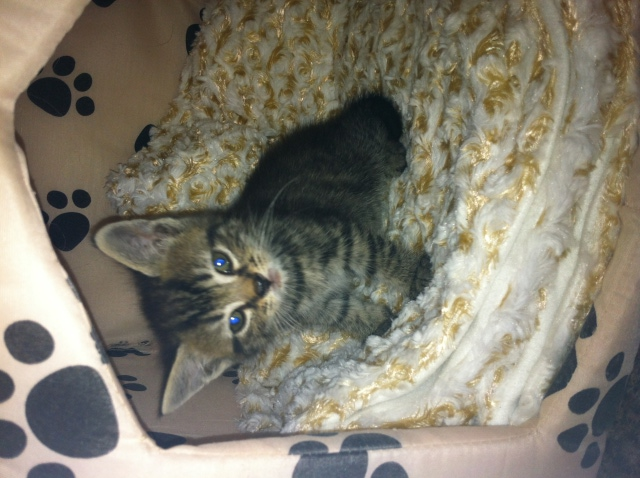 Bengal kitten?
Question
Pic Picture
Hello, I was wonderi
Bengal kitten?
Question
Pic Picture
Hello, I was wonderi
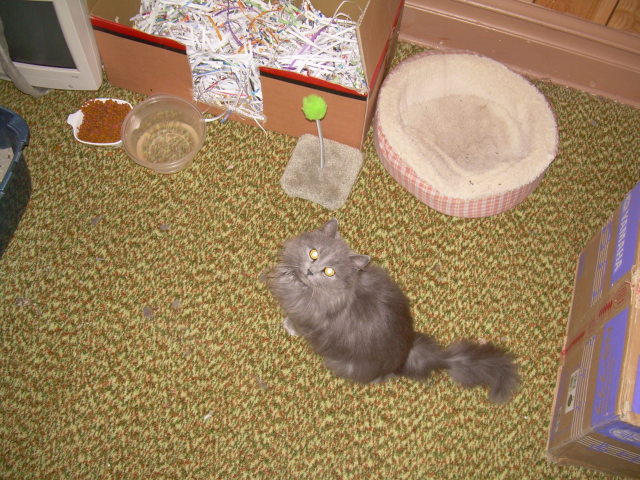 How pregnant is my cat
QuestionQUESTION: I was adopted by a local neighbor hoo
How pregnant is my cat
QuestionQUESTION: I was adopted by a local neighbor hoo